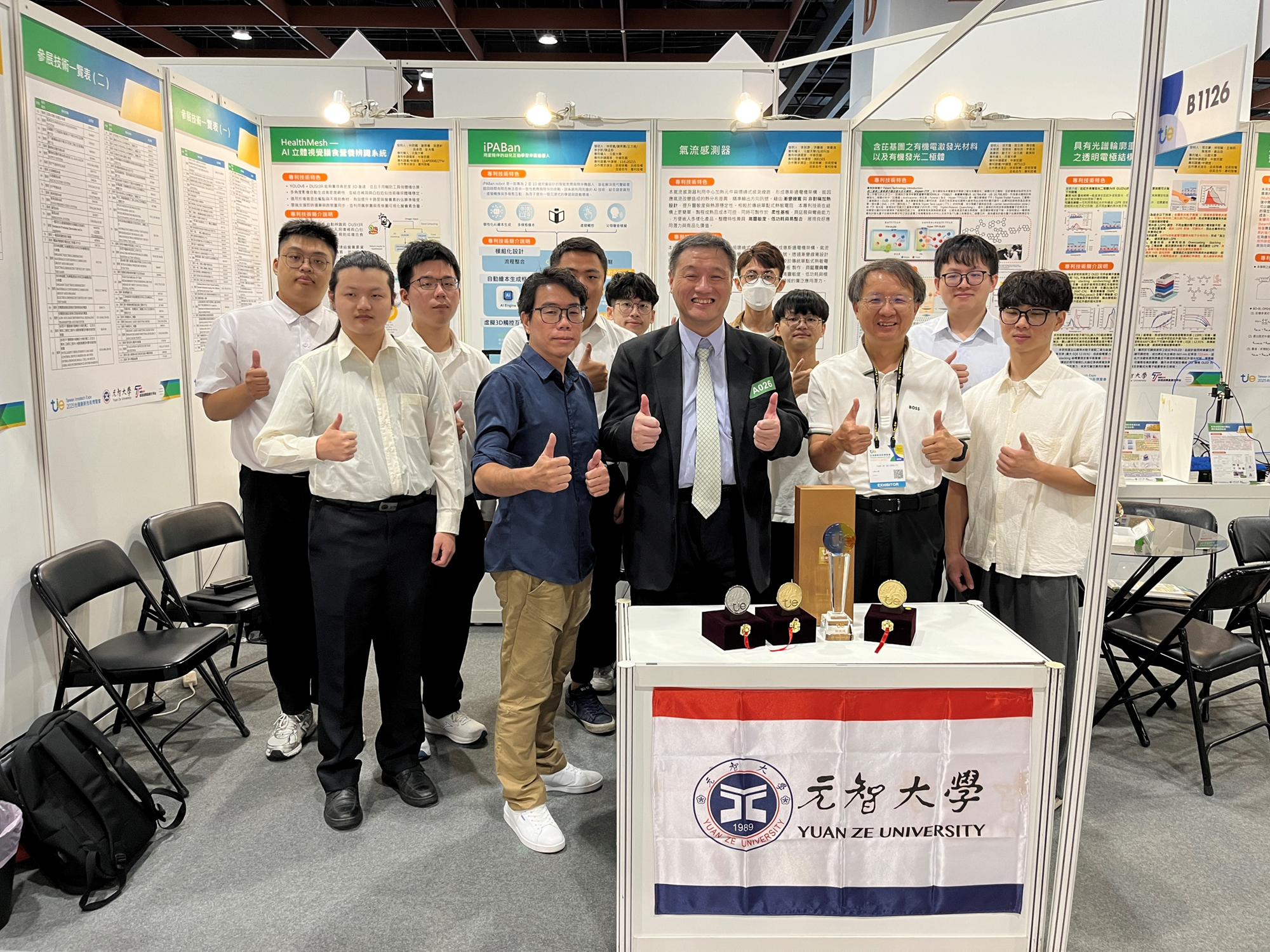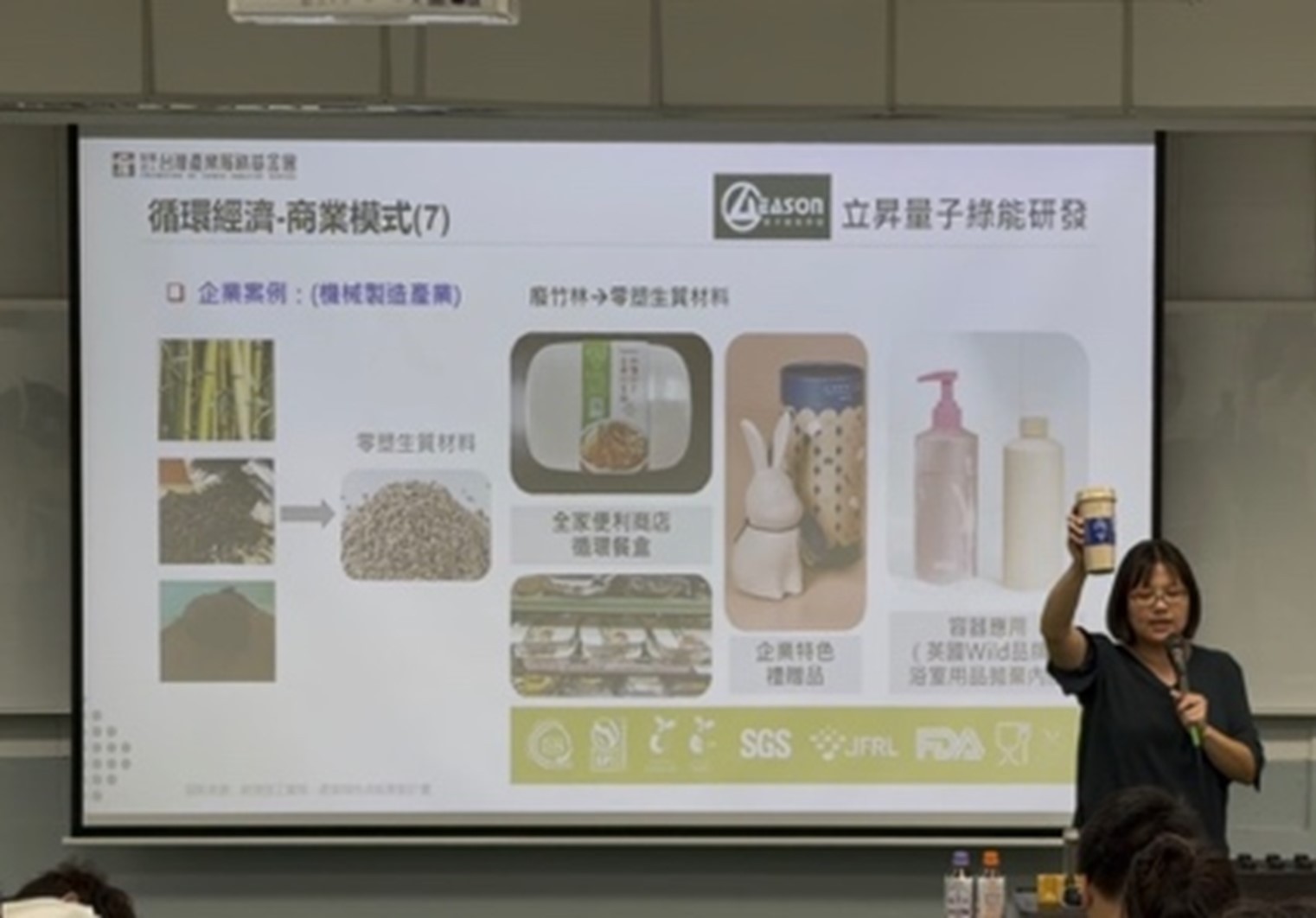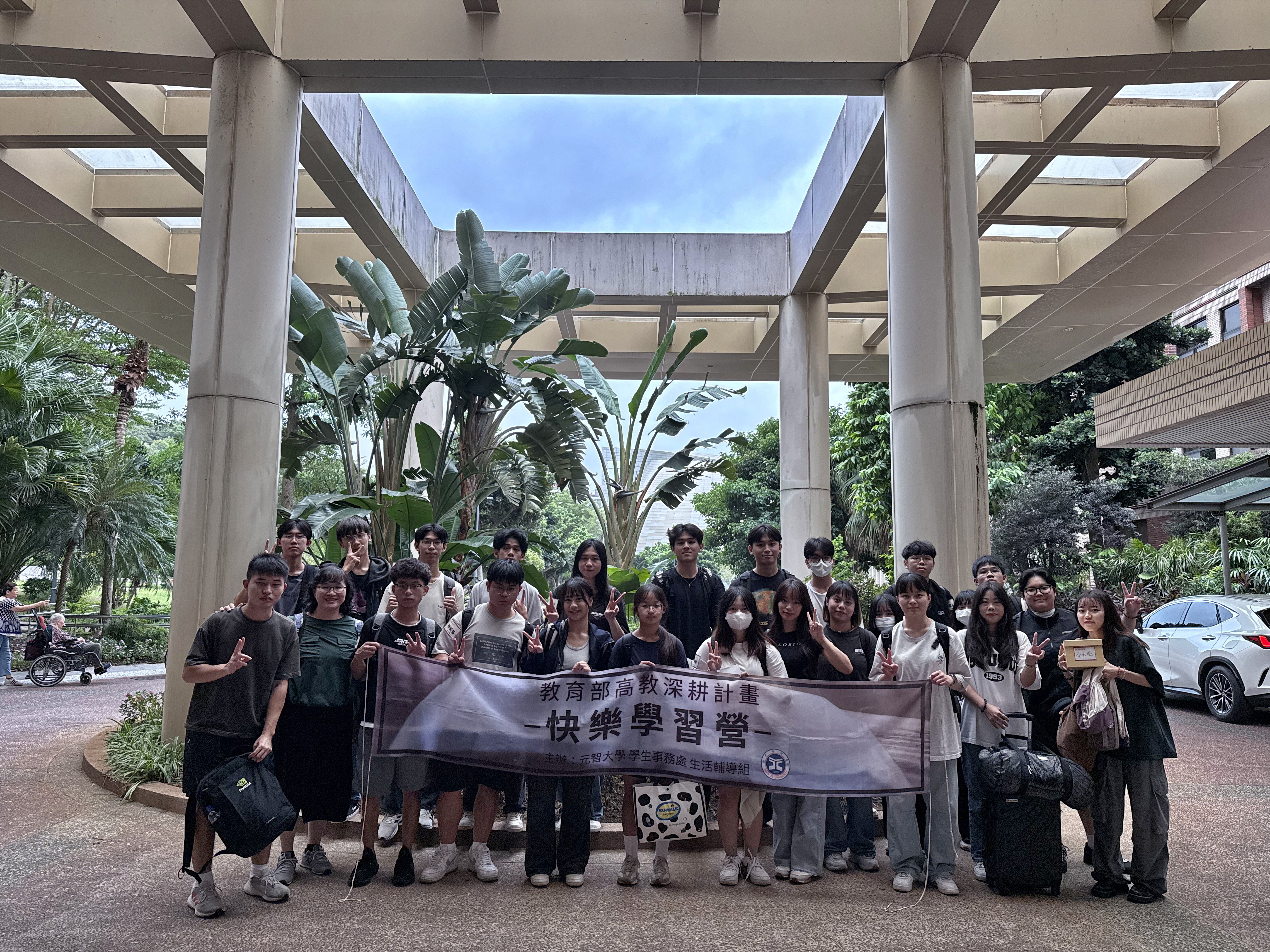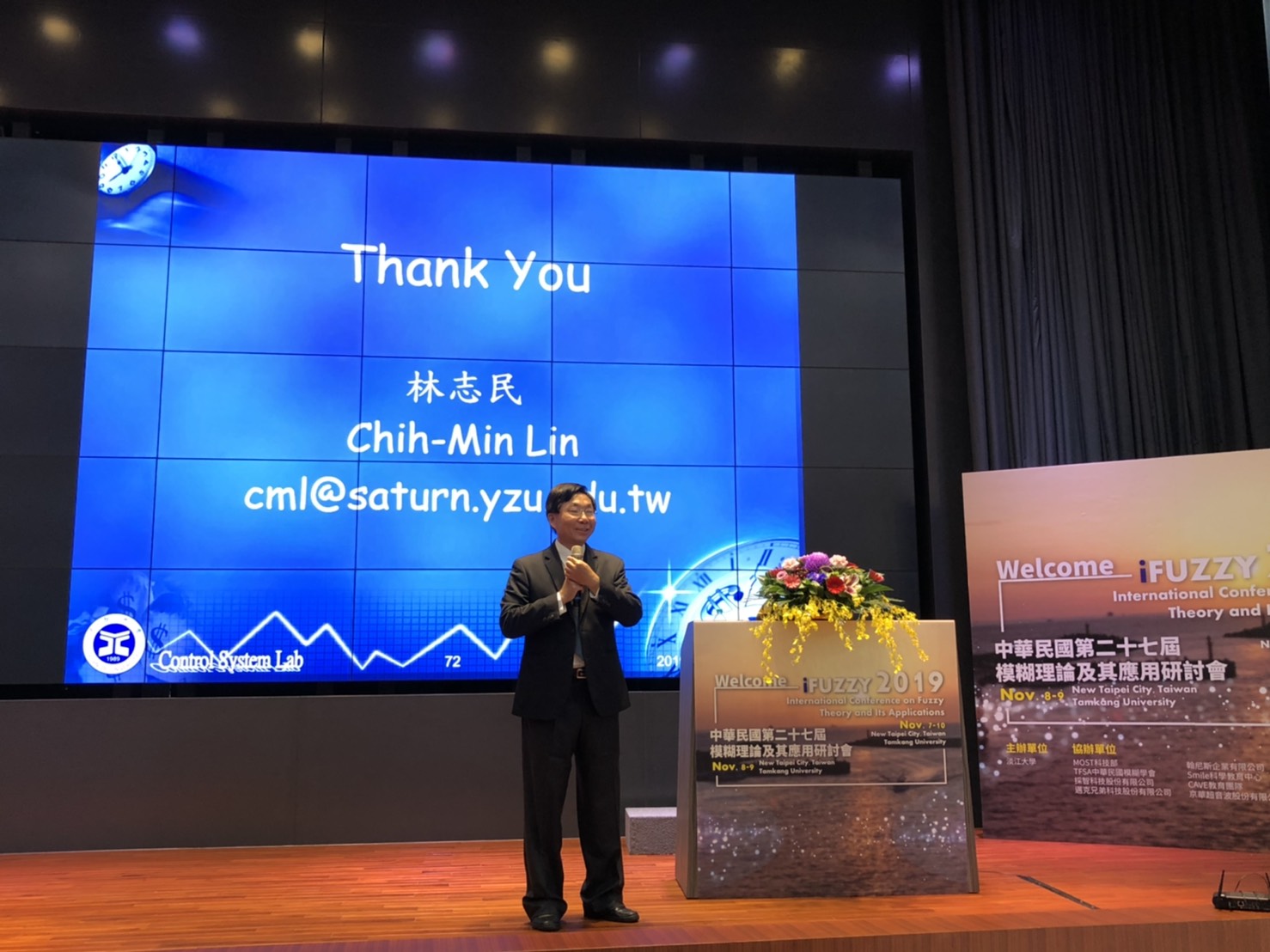The Yuan Ze University research teams achieved outstanding results at the 2025 Taiwan Innotech Expo, earning a total of one Platinum Award, two Gold Medals, and one Silver Medal from six patented technologies exhibited this year, demonstrating the university’s exceptional innovation capacity.
Tian-Long Chiu, Professor in the Department of Electrical Engineering, received the Platinum Award for his patented invention, “Organic Electroluminescent Materials Containing Pyrene Groups and Organic Light-Emitting Diodes.” Professor Chiu explained that the Hyper-TTF (Hyper Triplet-Triplet Fusion) emission mechanism was an original innovation of his laboratory for fluorescent OLED devices. His invention proposed an organic electroluminescent material containing pyrene groups with excellent fluorescence quantum efficiency and thermal stability, serving as an effective TTL layer in OLED devices. The design demonstrated both superior luminous performance and heat resistance, representing a significant breakthrough in OLED technology.
Chun-Hung Teng, also a Professor in the Department of Electrical Engineering, earned a Gold Medal for his patented technology, “Digital Predistortion Processing System for Beamforming Signals.” Professor Teng noted that this invention enabled Digital Predistortion (DPD) technology to be easily implemented even in large-scale multi-antenna wireless communication systems. It simplified system design under broadband communication environments, reducing computational load and cost while improving overall system flexibility. Experimental verification confirmed that the invention effectively achieved antenna beam steering and suppressed amplifier nonlinearity, proving its high practical value and technical significance.
Chi-Yuan Lee, Professor in the Department of Mechanical Engineering, received another Gold Medal for his patented “Airflow Sensor.” Professor Lee explained that the sensor utilized a central heating element and surrounding sensing circuits in a Wheatstone bridge configuration, enabling precise directional signal output based on temperature variations caused by airflow changes.
Through gradient line width and asymmetric heating design, the sensor achieved enhanced sensitivity and thermal stability. Compared to traditional single-point thermal resistors, this invention featured a simpler structure, a mature fabrication process, and cost-effectiveness. Moreover, it could be produced on flexible substrates, allowing extensibility and bending for integration into various products. The sensor’s high sensitivity, low power consumption, and easy integration showcased strong application potential and commercialization value.
Ming-Yi Lin, Professor in the Department of Computer Science and Engineering, received the Silver Medal for his patented invention, “Interactive Learning System and Operation Method.” Professor Lin explained that the iPABan Robot was an intelligent educational and companion robot designed for children aged 2 to 10. Utilizing advanced AI technologies combined with speech recognition, virtual touch, and multimodal interaction, the system provided an immersive environment for both learning and play.
Yu-Hung Wei, Vice President for Research and Development at Yuan Ze University, stated that in recent years, the university had actively expanded its research and innovation capacity to industry. In addition to encouraging faculty and student teams to pursue innovation and development, Yuan Ze University also promoted practical teaching and international technical certification, helping nearby industrial parks strengthen their industry-academia collaboration platforms and establish a more comprehensive talent cultivation ecosystem.
 English
English  正體中文
正體中文 



